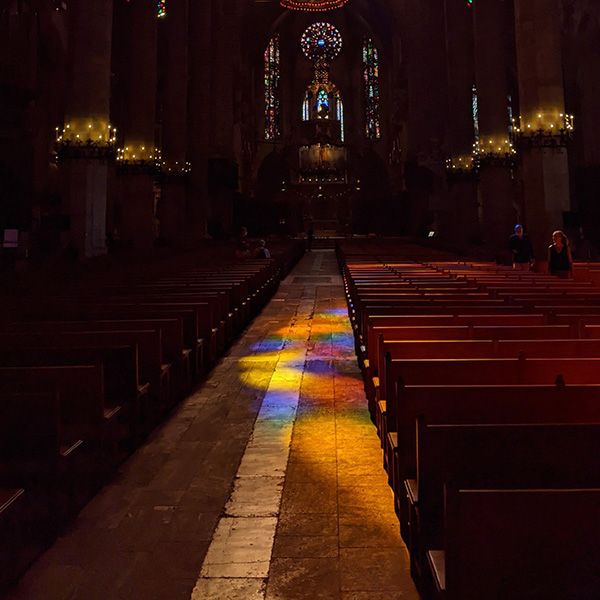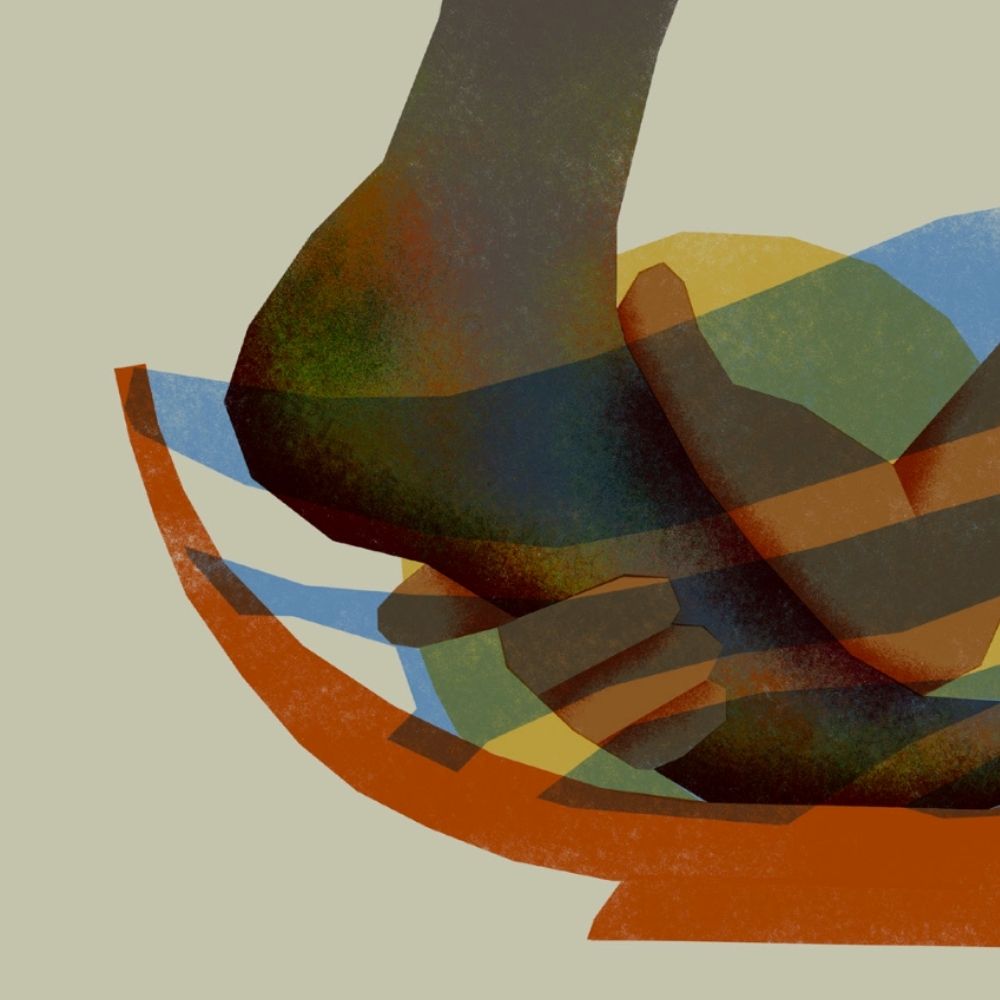
When I was in third grade, it was my Grandparents’ 50th wedding anniversary. To celebrate this amazing milestone, they took our whole family—aunts, uncles, and cousins included—on an out West adventure. From Custer National Park and the Badlands to Mount Rushmore and Yellowstone, then to Jackson Hole and the Grand Tetons as our final destination.
In impeccable 1990s family trip form, we traveled around the great American West in matching crew neck sweatshirts with “Jubilee 50” embroidered on them. Orange sweatshirts with blue print for the adults; blue sweatshirts and orange print for the kids. (The colors, you might guess, were a tribute to a certain Alma Matter.)
In the Bible, the Year of Jubilee occurred every seventh Sabbath cycle (i.e., 50 years). When it was Jubilee 50—the “Sabbath of sabbaths”—debts were forgiven, slaves and bonded laborers were freed, and land was redistributed for a just and flourishing common life.
Remember the Sabbath: I wonder what comes to mind when you hear that phrase.
Some might think of bygone days where nobody in town could mow the lawn. My dad recounted to me that he wasn’t permitted to play sports with friends on Sunday until he was in high school. My Sabbath memories are more positive, such as a long nap after church, playing catch in the backyard, and days out at the Lake.
The word Sabbath means to cease, to stop, or to quit. Back at the beginning God finished all the work he had done in creation, and then God “sabbath-ed.” God rested and so Sabbath is. The Genesis creation words are later transposed into the 10 Commandments that God gave to Moses on Mount Sinai.
As the story continues, Sabbath references abound: in Leviticus, meticulous attention is given to Sabbath and sabbatical periods to orient Israel’s worship and social life (like “Jubilee 50”). In Deuteronomy, we get a 10 Commandments remix with God’s people on the brink of the promised land. Sabbath is also at the heart of many Psalms.
Then when Jesus comes on the scene in the Gospels, he challenges the letter of the Law and the spirit of Sabbath in particular. After Jesus’ Resurrection, the early Church debates the place, meaning and practice of Sabbath as it relates to the Lord’s Day—that is, Sunday, the “eighth day”: new creation.
I. Play
Back to the Genesis of creation: God said “let there be”, and there was: light and darkness, lands and seas; the sun, the moon and the stars set in place, waters swarming and birds flying and creatures appearing in all kinds, shapes and sizes.
Playing reflects the creative activity of God. As mentioned, Sabbath means to cease, but it also means to delight. Sabbath play, therefore, invites a wholehearted posture of wonder rather than doubt, freedom rather than legalism. During my first year of graduate school I decided to take Greek, even though it was the subject that gave me the most dread. Every Friday we were tested over all that was covered for the week: vocabulary, grammar, paradigms and so on. Immediately after class, at 2:20pm, my fellow seminarians and I would book it over to the Wilson Center to run off some steam with a few hours of pickup basketball. One friend, with his characteristic chutzpah, practiced a textbook 24-hour Sabbath, beginning after Greek (his de facto Friday sundown), and finishing the next day.
Eugene Peterson wrote that “culture is healthy only when it plays. Play is a distinctive mode of activity for humans. When we repress or neglect play, we dehumanize culture” (Peterson, Working the Angles).
Sabbath play is a good gift from God. It is an invitation to image God’s rest, delight, freedom, and ultimately, God’s blessing on creation.
II. Pray
Where playing reflects God the Creator, praying calls on God the deliverer. As mentioned the Sabbath commandment remix of Deuteronomy 5 begins with the familiar language of Exodus 20, but then throws a curve-ball: “You shall remember that you were a slave in the land of Egypt, and the Lord your God brought you out from there with a mighty hand and an outstretched arm.”
Here is a shift from the creation words of Genesis to the liberation story of Exodus, where God delivered his people from 400 years of slavery and ceaseless toil. Praying reveals our need for God’s deliverance, “with a mighty hand and an outstretched arm.”
We live in a time and place that banks on constant stimulation and unending activity. I’ve noticed a pattern that goes something like this: targeted messaging, via screens, to acquire more stuff. That stuff, then, promises to appease the appetites of the self with its replacement trinity of holy needs, holy wants and holy feelings. Sabbath praying calls for deliverance from screens, stuff, and the “sovereign self.”
In a book that is popular among college students, the author writes: “The Sabbath is like a guerrilla warfare tactic. If you want to break free from the oppressive yoke of Egypt’s taskmaster and its restless, relentless lust for more, just take a day each week and stick it to the man…Above all, slow down long enough to enjoy life with God, who offers everything that materialism promises but can never deliver on.” (Comer, The Ruthless Elimination of Hurry).
III. Hope
The sure and certain hope, finally, is that Jesus is Lord of the Sabbath. We are given this good news by three Gospel writers: Matthew, Mark, and Luke.
That Jesus is Lord of the Sabbath gives us hope. Hope for deliverance from the scripts of culture. Hope for freedom to go the way of the King and his Kingdom.
Jesus is Lord of the Sabbath, and that is our hope, because Jesus is Lord of all. His Sabbath rest between the Cross and the Resurrection ushered in the first fruits of what the old theologians called the Eternal Sabbath: “There we shall rest and see, see and love, love and praise. This is what shall be in the end without end. For what other end do we propose to ourselves than to attain to the Kingdom of which there is no end?” (Augustine)






Thank you the beautiful piece on the Sabbath. I especially like the insight on the Eternal Sabbath.